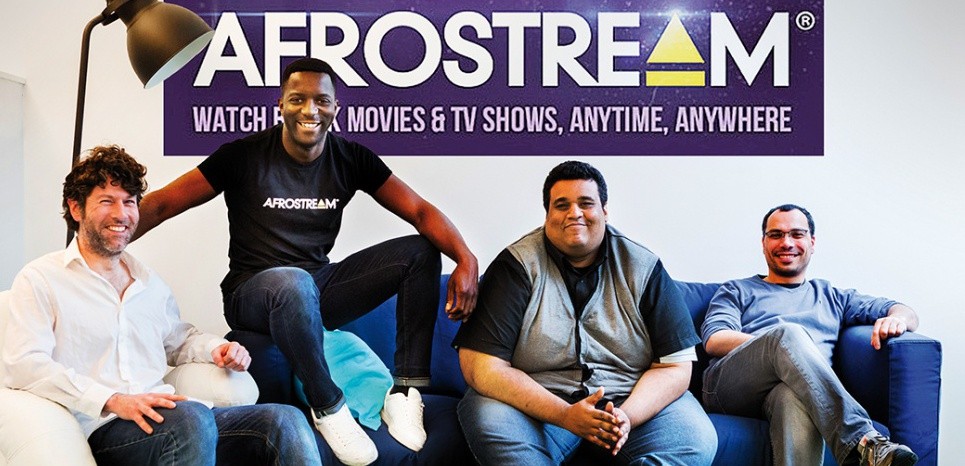Case study: Lessons from the Downfall of Afrostream

Udokanma Georgewill
April 27, 2024

Afrostream launched in 2015 with big ambitions. Backed by Y Combinator, a well-known startup accelerator, they wanted to be the go-to streaming service for people interested in African, African-American, and Caribbean movies and shows. They promised a huge collection of content, carefully chosen to appeal to the tastes of the African diaspora. At first, there was a lot of buzz around Afrostream. But sadly, the party didn't last long. Just two years after they started, Afrostream had to shut down. Let’s highlight the problems Afrostream ran into and look at the bigger picture of streaming services in Africa as a whole.
Content Acquisition and the Giant Competition
The largest obstacle facing Afrostream was acquiring the shows and films that viewers desired to watch. This is because it is expensive to buy the rights to stream movies and shows, and other companies like Netflix and Amazon Prime have already bought the rights to many of the most popular ones. This made it hard for Afrostream to compete because even though they focused on movies and shows specifically made for Africans, African-Americans, and Caribbeans, there just weren't enough of them available that weren't already on Netflix or Amazon Prime. In the end, Afrostream just didn't have enough content to keep people subscribed.
Technology Hurdles and Optimization
Behind the scenes, the streaming company encountered some difficulties with the technology that powered the service. They partnered with other companies to handle video playback, while also ensuring content security to prevent piracy. This wasn't necessarily a bad idea, and it can sometimes be helpful to let other companies handle those difficult tasks. However, the problem was that Afrostream didn't seem to have in-house experts on staff who could completely understand how these outside systems worked. This meant that they couldn't make the most of these tools to fit the specific needs of Africa.
Unlike places like the United States and Europe, many African countries have internet that's slow and unreliable. This can cause videos to buffer a lot, which means they take a long time to load and can be frustrating to watch. If Afrostream had had more control over the technology, they might have been able to find ways to make their service work better in Africa, even with the slower internet speeds. But because they relied on outside companies, they weren't able to solve this problem.
Price Wars and Market Saturation
Afrostream wasn't the only company with the idea of bringing streaming services to Africa, but it entered the market at a tricky time. Consider yourself in an environment where the majority of people have not even seen a traditional movie theatre yet, trying to market a completely new type of theatre. That was the kind of position Afrostream was in. While more and more Africans were getting internet access, they weren't used to paying for entertainment online. Many people were happy with just watching free videos on YouTube or other websites. On top of that, Afrostream wasn't the only game in town. A company called Showmax was already offering streaming services in Africa, and they had a big advantage. Showmax is owned by a giant company called MultiChoice, which is basically the “cable company of Africa.” Because of this, Showmax could offer their streaming service at a lower price, and they had a wider variety of movies and shows, not just African and African-American ones. This made it hard for Afrostream to convince people to switch to their service, especially since many people in Africa were just figuring out the whole streaming idea in the first place.
It is evident from Afrostream's story that it is not easy to launch a niche streaming service in Africa. While their closure might seem like bad news for streaming in Africa as a whole, that's not quite the case. Big companies like Netflix and Amazon see the potential for streaming in Africa, and they're putting their money where their mouth is. They're not just adding more African movies and shows to their libraries, they're also making their shows in Africa! This is a great sign for African viewers because it means there will be more content that reflects their culture and stories. Plus, these big companies are aware of the slow internet speeds in many African countries, so they're working with internet providers to make sure their streaming works smoothly.
Another player to watch is Showmax. They're like the big box store that also has a strong online presence. Since they're already a major player in African pay-TV, they have a head start in the streaming game. They can offer competitive prices and a good mix of African and international content that includes football games.
The Future of Streaming Services in the Coming Decade
Companies that can provide answers to these three key questions will shape the future of streaming services in Africa.
First, can they build a collection of movies and shows that African viewers want to watch? This means having a good mix of Hollywood hit shows from around the world, especially content created in Africa that reflects African cultures and stories. They need to be the go-to place for African viewers to find something they'll love.
Second, can they make sure their service runs smoothly, even in places with slow internet? This might involve partnering with local internet providers to improve speeds or developing technology that allows videos to stream well even with limited bandwidth. Streaming services need to find a way to make their content stream reliably, even in areas where the internet isn't always the best.
Finally, can they find a way for people to pay for their service easily? In many African countries, credit cards are less common than in other parts of the world. Streaming services must be flexible and accept different payment methods, including mobile money, which is becoming increasingly popular in some parts of Africa. If people can't easily pay for the service, they won't sign up, no matter how great the content library is.
By addressing these three challenges, streaming services can unlock the huge potential of the African market. There are millions of people in Africa who are getting internet access for the first time, and they're looking for entertainment options. The companies that can answer these pertinent questions will be the ones to succeed.


